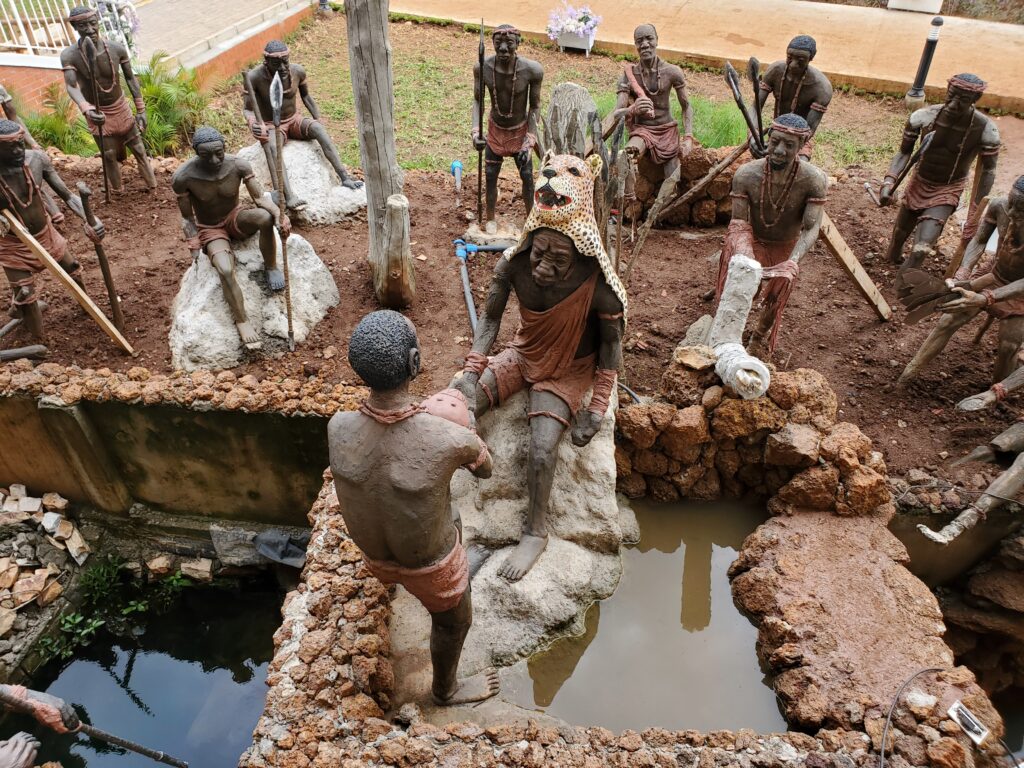By Eriah Lule
The great-grandson of a legendary executioner, a role steeped in history and custom, I find myself caught in the complicated tapestry of existence. This heritage, albeit burdensome, carries a significant weight on my shoulders as I try to strike a balance between honouring my forefathers’ legacy and making my own path in a society where they formerly held the power of life and death.
While the weight of this heritage is apparent, I wish to break free from the constraints of fate, to seek a higher purpose that fits with my deepest convictions. I strive to find a profound synthesis where I can honour the past amid the strain of these opposing impulses.
Tales of my forefathers’ grueling chores resonated through the walls of our ancestral home as I grew up. A terrifying remnant of a bygone period, the massive axe that previously dismembered skulls lay dormant. But the weight of responsibility hung over me.
Haunted by the shadows of my forefather, Mukajanga, later Paul Kibuuka, I embarked on a journey of self-discovery. I delved deep into the annals of history, seeking solace and understanding. The more I learned, the more I realized that my lineage did not define me. I possessed the power to break free from the chains of tradition.
Determined to forge a different destiny, I immersed myself in education. I studied law, aiming to become a beacon of justice rather than an instrument of brutality. My desire to bring fairness and compassion to the world became my driving force.
Today, as a lawyer, I fight for the rights of the oppressed and the wrongly accused. I have transformed the legacy of my forefathers into a force for good. Mukajanga’s weapon may have once held sway over the lives of others, but now it is my voice that speaks for the voiceless.
In my heart, I carry the lessons of my ancestors’ tales of power and pain. I honor their memory by using my knowledge and empathy to build a just society. I have redefined what it means to bear the name of an executioner. And through my actions, I hope to inspire others to break free from the shackles of their own legacies, forging a new path for themselves.
A very tuff time that Kinsa (not his real name), an alumnus of law from Uganda Christian University (UCU), passed through growing up as a member of the lineage of Mukajanga, the Chief Executioner of Buganda Kingdom’s King Mwanga,
In the Daily Monitor of June 3, 2022, Eliasafu Nsubuga, a clan member also known as ‘Mukaja Omulamu’, meaning the living Mukajanga, noted that the man was a loyal subject who couldn’t defy the orders of his boss, Kabaka (King) Mwanga.
He further noted that defying the King’s order at the time was like a capital offense in such times.
But who was Mukajanga?
Nsubuga affirms that Mukajanga was born in Buyonga-Kikandwa, Kakiri Town Council, Wakiso District, in the central part of Uganda. During his youthful days, around 1882, he was taken to serve the King’s palace as a royal guard.
Due to his ambition and hard work, Mukajanga made his way through the ranks to become one of the most trusted and powerful servants in the kingdom.
In 1884–1886, he was entrusted with a peculiar role as the King’s Chief Executor, a role he served without fail.
Mukajanga established his office near a water stream at the current Anglican Shrine in Namugongo; from here he would get water for home consumption and clean his weapons after the execution, according to Nsubuga.

His family strongly defends the forefather, claiming that he was aware of the effects of the foreign religions introduced by both Christian and Muslim missionaries on the king’s subjects (martyrs).
After the disobedience of 45 of the subjects defied the king, furiously the king ordered his blue-eyed man Mukajanga to discipline. Mukajanga burned and murdered 22 Catholic, 23 Anglican, and around 5 Muslim martyrs at Namugongo.
Mukajanga died at 14 years of age around the 1900s, but he had been converted to Christianity, and his name was transformed to Paul Kibuuka. It’s no shock that his linage has a lot of priests in it.
Ben Tenywa is a tour guide at the Uganda Martyrs Shrine in Namugongo; the place was originally called Busale. It was the chief execution ground of the Buganda Kingdom. Subjects who committed capital offenses
The place was established by Kabaka Kyabagu, one of Buganda’s kings, around the mid-1700s. It was at this place that the chief executor’s office was located.
The name “Namugongo’ was derived from the word Omugongo, “human back’. Tenywa further noted that during the journey of the martyrs to the execution site, the prisoners went through a lot of torture, which included dragging them on their backs (Omugongo).
A saying that later came up was ‘Abasajja babatutte namugongo,” meaning ‘The prisoners were taken by their backs’.


